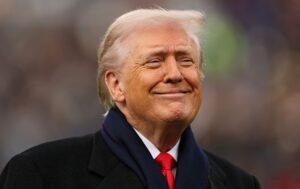
US President Donald Trump has signed a new presidential proclamation that expands and tightens restrictions on foreign nationals entering the country, bringing the number of countries subject to full or partial bans to 39, according to the text of the document and explanations from the White House.
According to the proclamation, the previously existing restrictions on the entry of citizens of 12 “high-risk” countries remain in full force: Afghanistan, Myanmar (Burma), Chad, the Republic of Congo, Equatorial Guinea, Eritrea, Haiti, Iran, Libya, Somalia, Sudan, and Yemen. Entry into the US for citizens of these countries in immigration and most non-immigration visa categories is suspended, except for individual exceptions and humanitarian cases provided for by law and the document.
A complete ban on entry also applies to citizens of five additional countries—Burkina Faso, Mali, Niger, South Sudan, and Syria—as well as to individuals traveling on travel documents issued or certified by the Palestinian Authority. The decision is justified by high visa overstays (cases of exceeding the permitted period of stay), security concerns, and the unwillingness of the authorities of these countries to accept deported citizens.
Separately, the proclamation moves Laos and Sierra Leone from partial restrictions to a de facto total ban: entry into the US for citizens of these countries under both immigrant and major non-immigrant visa categories (B-1/B-2, F, M, J) is suspended.
At the same time, the document eases restrictions for Turkmenistan: against the backdrop of “significant progress” in cooperation with Washington, restrictions on the issuance of non-immigrant visas to citizens of this country are being lifted, but the ban on immigrant entry remains in place.
In addition, partial restrictions are being introduced for 15 countries: Angola, Antigua and Barbuda, Benin, Côte d’Ivoire, Dominica, Gabon, Gambia, Malawi, Mauritania, Nigeria, Senegal, Tanzania, Tonga, Zambia, and Zimbabwe. For citizens of these countries, entry into the US as immigrants and as holders of B-1/B-2, F, M, and J visas will be restricted, and the validity of other categories of visas issued by US consulates is expected to be reduced “to the extent permitted by law.” The reasons cited are high rates of visa violations, the existence of “citizenship for investment” programs without residency requirements, and problems with returning illegal migrants to their home countries.
Partial restrictions remain in place for a number of countries that already appeared in previous versions of the high-risk migration regime, in particular Burundi, Cuba, Togo, and Venezuela, according to White House documents.
The US administration emphasizes that the goal of the updated system is to “increase security and immigration control” and to encourage foreign countries to strengthen data exchange, reduce visa violations, and more actively accept deported citizens. The document provides for the possibility of revising the list of countries and the nature of restrictions based on the results of regular assessments by the State Department and the Department of Homeland Security.
According to observers, the Trump administration’s next step in the field of migration may be to further tighten checks on applicants from “at-risk” countries, expanding the practice of targeted restrictions on certain visa categories (including work and student visas), and attempting to link the easing of restrictions to agreements on security and cooperation on the return of illegal migrants. At the same time, experts expect legal disputes over the new measures to intensify and be challenged in federal courts, as has been the case in previous years.
https://expertsclub.eu/tramp-posylyuye-migraczijnu-polityku-chogo-ochikuvaty-dali/
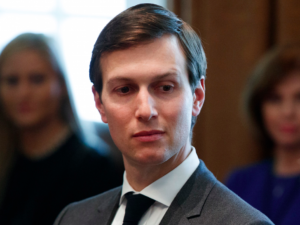
According to the Serbian Economist, the investment company of Jared Kushner, son-in-law of US President Donald Trump, Affinity Partners, has withdrawn from the project to build a hotel and business complex on the site of the former building of the General Staff of the Yugoslav Army in the center of Belgrade.
According to Radio Liberty (Balkan service), the company has withdrawn its application for the project, which envisioned the construction of a luxury complex on the site of the General Staff buildings destroyed during NATO bombing raids in 1999.
According to a spokesman for Affinity Partners, the decision was made “out of respect for the citizens of Serbia and Belgrade,” as large projects “should unite, not divide” society.
The announcement of the company’s withdrawal from the project came against the background of the fact that on the same day, the Serbian Prosecutor’s Office for Combating Organized Crime filed an indictment against Culture Minister Nikola Selakovic and a number of officials. They are accused of abuse of power and falsification of documentation when the General Staff complex was stripped of its status of protected cultural heritage, which opened the way for commercial development of the site.
Kushner’s project during the year caused mass protests of the opposition, student and urban protection initiatives, which insisted on the preservation and restoration of the complex as an important monument of modernist architecture and a memorial site associated with the victims of the 1999 bombings. Activists called the investor’s rejection an “important victory,” but warned that the General Staff remains at risk of status changes and possible demolition in favor of other development projects.
The Serbian government and presidential administration had not commented on the information about Affinity Partners’ withdrawal from the project at the time of publication of the Radio Liberty piece.
Affinity Partners is a private investment company of Jared Kushner, created after his departure from Donald Trump’s administration and working with the capital of Middle Eastern and other institutional investors. In Serbia, the redevelopment project of the General Staff complex was realized through affiliated structures (including Atlantic Incubation Partners / Affinity Global Development) and envisioned an investment of about $500 million, a 99-year lease on the site and a profit share for the state of Serbia of about 22%, the New York Times and other media reported earlier.
https://t.me/relocationrs/1947
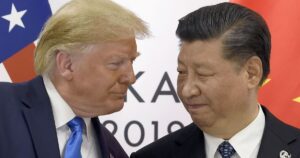
Chinese President Xi Jinping will not attend next week’s Group of 20 summit, dealing a blow to South Africa, which is already facing a boycott by US President Donald Trump, Bloomberg reports.
China’s Foreign Ministry announced on Thursday that Premier Li Keqiang will represent the country at the leaders’ summit, which begins in Johannesburg on November 22. The statement did not explain why Xi, who attended the event last year, will be absent this time.
Xi’s decision means that the summit, created to address geopolitical and economic issues and usually attended by heads of state, will not be attended by the leaders of the world’s two largest economies and another member country, Russia. Last week, Trump said that no American officials would attend the summit after he attacked South Africa with false claims of genocide against white Afrikaners. Russian President Vladimir Putin’s trip remains limited due to an arrest warrant issued by the International Criminal Court,” the statement said.
Other G-20 leaders, including Javier Milei of Argentina and Claudia Sheinbaum of Mexico, will also not travel to South Africa. However, several European leaders, as well as Brazilian President Luiz Inacio Lula da Silva and his Turkish counterpart Recep Tayyip Erdogan, plan to be there.
Lin Jian, spokesperson for China’s Foreign Ministry, said at a regular briefing on Thursday that the meeting in Johannesburg “has important historical significance” as it is the first G20 summit on the African continent, and expressed support for South Africa as the host country.
Li, China’s second-highest-ranking official, has represented Xi at other major international events in recent years. He stood in for the president at the G20 summit in India in 2023 and at the BRICS leaders’ meeting in Brazil in July.
South African officials say in private comments that the absence of the US may make it easier to reach agreement on the declaration, which they believe will be an indicator of the success of the country’s G20 presidency before handing over to Washington in December.

According to Serbian Economist, the Serbian parliament has passed a special law that accelerates preparations for the development of the site of the former Yugoslav National Army General Staff Headquarters in central Belgrade, which was damaged by NATO strikes in 1999. The developer is Affinity Global Development, an investment company founded by US President Donald Trump’s son-in-law Jared Kushner.
The project, worth about $500 million, involves the construction of a hotel, apartments, offices, and retail space, as well as a memorial space for the victims of the bombing.
A 99-year lease agreement with the Serbian government was signed in May 2024. In November 2024, the site was stripped of its protected cultural heritage status, paving the way for the project to go ahead. The adopted lex specialis simplifies and speeds up the issuance of permits and other administrative procedures, the authorities noted.
The opposition and relevant organizations criticize the decision, citing the cultural value of the complex and legal risks. Europa Nostra has included the General Staff Headquarters in its list of the seven most vulnerable European heritage sites of 2025. Radio Liberty notes that the law was passed with the votes of the ruling party, despite protests and an investigation into possible falsification of the document used to remove the protective status.
Affinity Global Development’s public statements and official communications do not mention the hotel brand, number of rooms, number of floors, room area, parking, or exact completion date. International agencies limit themselves to describing the functional mix without specifications. When official materials on the TEP and branding appear, the editorial staff of Serbian Economist will clarify the data.
The government is promoting the project as an investment and revitalization of Belgrade’s central location. Critics believe that the demolition and new construction will damage the modernist legacy of architect Nikola Dobrovic and the public memory of the events of 1999.
https://t.me/relocationrs/1705
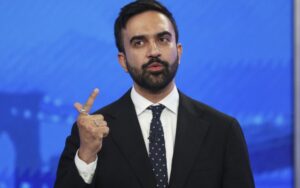
34-year-old New York State Assemblyman Zohran Mamdani has won the New York City mayoral election, becoming the first Muslim to lead the city and the youngest mayor in more than a century. The victory has been confirmed by leading media outlets and agencies; His opponents were independent candidate Andrew Cuomo and Republican Curtis Slyva.
In his first speech after the results were announced, Mamdani said he would make New York a city for immigrants and vulnerable groups, naming affordable housing, transport and raising the minimum wage as his priorities.
He also publicly addressed Donald Trump. Donald Trump had previously called for a vote against Mamdani, supporting Cuomo, and threatened to limit federal funding for New York in the event of a victory for the democratic socialist; after the results were announced, he sharply criticised the mayor on social media.
Political analysts note that the victory of the left-wing candidate in the largest city in the United States and the response of the Republicans will indicate a further intensification of the confrontation between the two main parties at the federal and municipal levels in the run-up to the next electoral cycle.
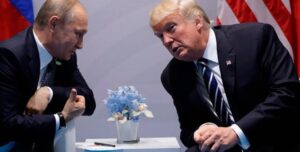
U.S. President Donald Trump said on Saturday he does not plan to meet with Russian President Vladimir Putin until he thinks a deal is in place to secure peace between Russia and Ukraine.
“You have to know that we’re going to make a deal, I’m not going to be wasting my time,” Trump told reporters in Doha.